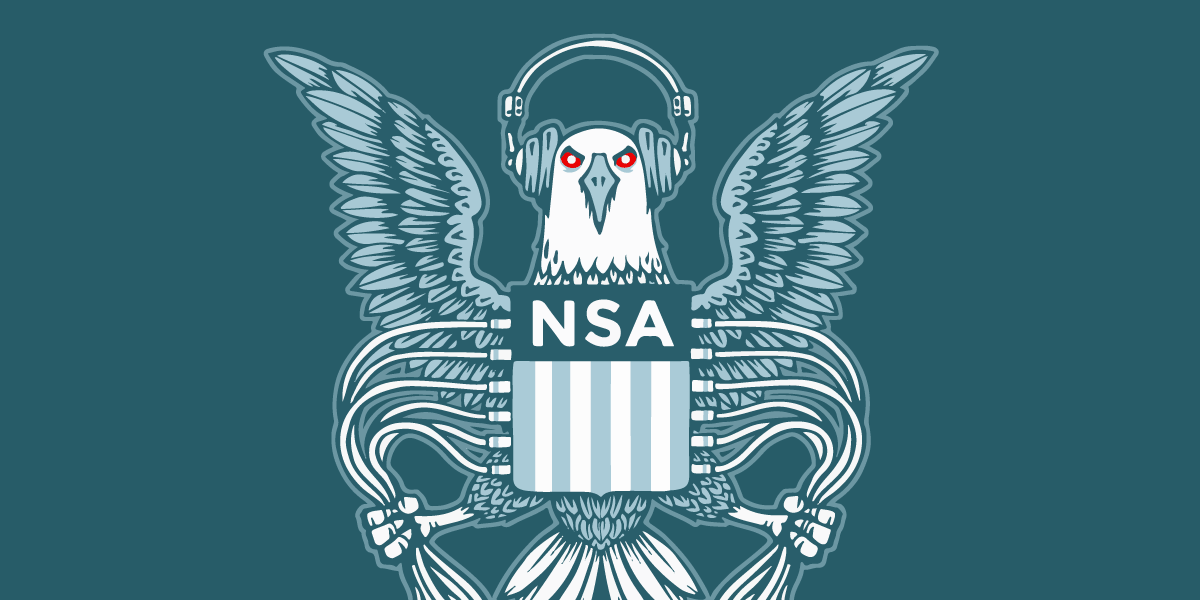Organizations raising concerns about mass surveillance, secrecy, and the Fourth Amendment, among other issues, have filed amicus briefs in support of EFF’s Jewel v. NSA case, currently pending in the Ninth Circuit Court of Appeals. The Court of Appeals is set to review the District Court’s decision, which dismissed the case and effectively gave the government the power to decide whether Americans can seek judicial review of mass domestic national security surveillance. EFF filed its brief on September 6.
The six amicus briefs described below cover a wide number of issues, helping flesh out a fuller story of why the case was improperly dismissed.
Internationally Mass Surveillance is No Secret
The Center for Democracy and Technology and the New America Foundation’s Open Technology Institute challenged the government’s assertion of the state secrets privilege by cataloguing in detail the extent to which the technical details of bulk fiber optic surveillance are discussed openly by other nations without apparent harm to their national security. These openly discussed details stand in sharp contrast to the US government’s assertion in Jewel that information about how it conducts bulk fiber optic surveillance are so secret that even the protective procedures provided for in Section 1806(f) cannot be used. The brief is based on the simultaneously released report entitled “Not a Secret: Bulk Interception Practices of Intelligence Agencies” by surveillance expert Eric Kind. Relatedly, the South African Supreme Court recently rejected bulk surveillance without succumbing to secrecy claims.
State Secrets Privilege Should Not Block the Case
The ACLU filed a brief confirming that when Congress created FISA, it sought both to deter the executive branch from engaging in illegal surveillance and to guarantee meaningful remedies to those subjected to it. This included displacing the state secrets privilege that the District Court relied upon in dismissing Jewel. The ACLU also confirmed, as EFF has, that the Ninth Circuit has already decided this in the recent Fazaga decision where the ACLU is co-counsel.
The Fourth Amendment Has Been Violated
The National Association of Criminal Defense Lawyers notes that “the mass interception, copying and examination of Plaintiffs’ Internet communications constitutes a search and seizure, triggering the Fourth Amendment’s warrant requirement.” It then specifically responds to the government’s core defense of its actions, explaining how the “special needs” exception to the warrant requirement does not apply. The exception requires two things and neither occurs here. First, the exception requires that the “primary purpose” of the search not be for law enforcement, but NSA surveillance need only have foreign intelligence as a “a significant purpose." The government admits that it uses NSA surveillance for law enforcement,through what Congress calls the “back door” on a regular basis. Second, the NACDL rightly notes that the scope of the surveillance does not meet the law’s requirement that any searches and seizures be “reasonable” given how many innocent Americans are caught in the dragnet.
Fourth Amendment Possessory Interests and Prohibition on General Warrants Have Been Violated
The Free Speech Coalition, Free Speech Defense and Education Fund, Downsize DC Foundation, DownsizeDC.org, Gun Owners Foundation, Gun Owners of America, Inc., Conservative Legal Defense and Education Fund, Poll Watchers, Policy Analysis Center, the Heller Foundation, and Restoring Liberty Action Committee explain another way that the Jewel plaintiffs have suffered an injury under the Fourth Amendment: their possessory interests. They point out that Justice Gorsuch has analogized the remote storage of digital information to the law of bailments, where title to an item remains with the owner even as the item is held by a third party, meaning that the Fourth Amendment should apply even though the seizure and searches occur when messages are in transit or stored remotely. Amici also agree with us that the foundational American prohibition on general warrants, famously argued by James Otis at the time of the American Revolution, should apply to the government’s bulk surveillance programs
Mass Surveillance Affects Human Rights Defenders, and Parallel Construction Blocks Other Judicial Review
Human Rights Watch wrote to emphasize how they and other human rights defenders are routinely subjected to U.S. and foreign surveillance and how such surveillance hinders their work. HRW also argued that the district court’s decision encouraged the government to employ "parallel construction," whereby the government reconstructs evidence obtained using electronic surveillance, such as by having an intelligence agency tip off separate law enforcement officers to seek that evidence, without explaining the basis of the tip. The practice enables the government to hide misconduct and evade judicial review of its actions.
Journalists Are Especially Impacted by Mass Surveillance
The Reporters Committee for Freedom of the Press noted that journalists' work, especially the confidential reporter-source relationship, depends on digital technologies free of mass surveillance. It also takes special notice of the need for protection “in the context of recent developments in ‘leak’ prosecutions.”
We know that hundreds of millions of people around the world are concerned about mass surveillance. We appreciate that so many strong and varied organizations were able to come forward and stand with us in this case. You can read more about EFF v. Jewel here.












